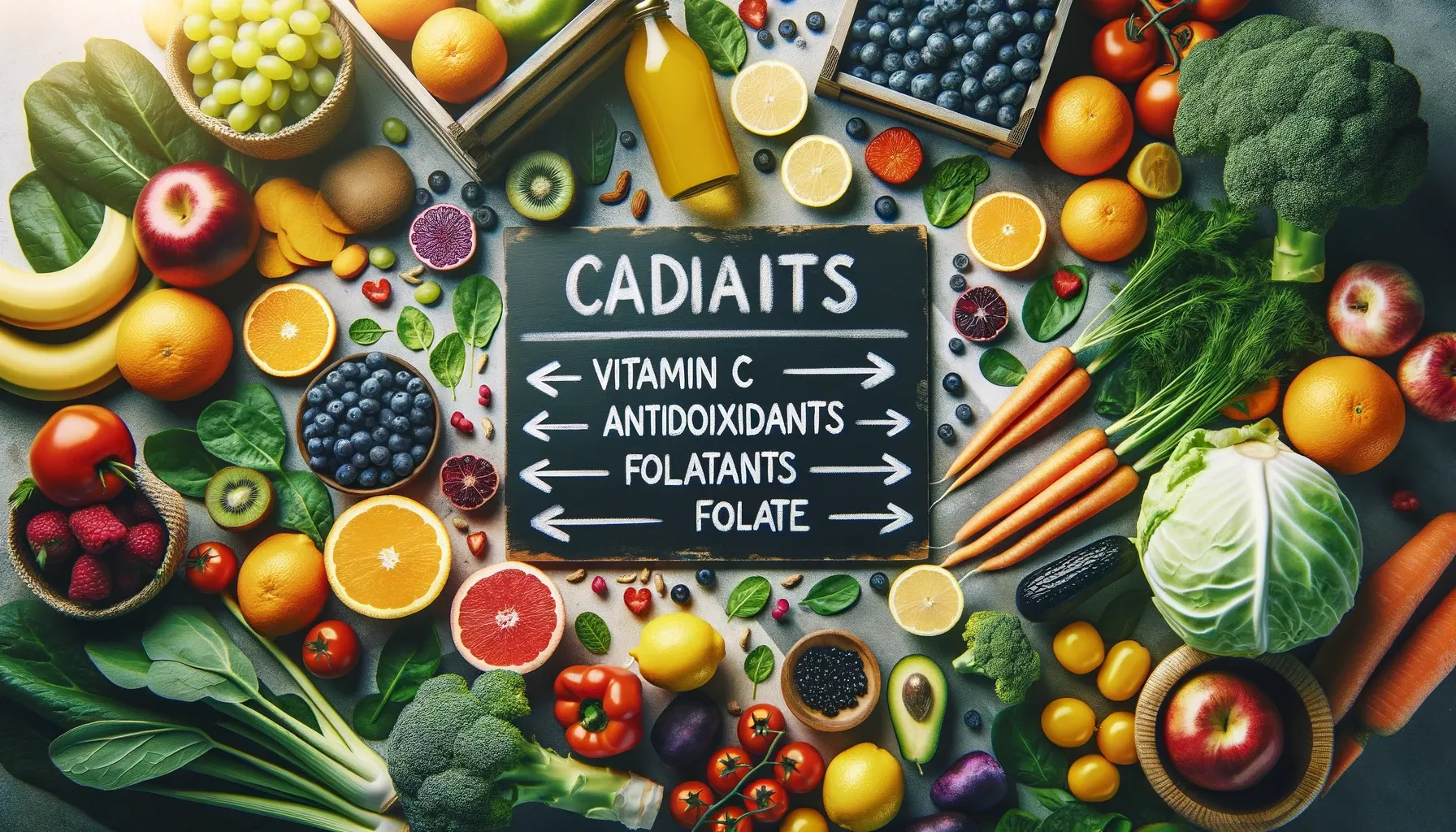I am excited to share with you the incredible potential of food as medicine. By incorporating specific healthy foods into your diet, you can proactively prevent diseases and enjoy a multitude of nutritional benefits.
When it comes to disease prevention, the old adage “you are what you eat” couldn’t be truer. The foods we consume play a significant role in our overall health and well-being. By making mindful choices and embracing a diet rich in nutritious ingredients, we can harness the power of food to boost our wellness.
In this article, I will reveal the top 10 essential foods that you should be eating now. These foods have been carefully selected for their disease-fighting properties, nutritional value, and ability to support your body’s natural healing processes. By incorporating them into your daily meals, you can take a proactive approach to your health and pave the way for a vibrant, disease-free life.
Join me on this journey as we unlock the potential of food as medicine together. Let’s discover the transformative effects of healthy eating and embark on a path to optimal well-being.
The Medicinal Effects of Food

Food has remarkable medicinal effects on our bodies. The nutrients found in our diet play a crucial role in promoting health and protecting against diseases. Vitamins and minerals, such as vitamin C, vitamin D, and folate, are essential for overall well-being and can decrease the risk of certain illnesses. Antioxidants, which are abundant in fruits and vegetables, help protect our cells from damage. Fiber, found in whole grains and legumes, promotes proper digestion, reduces inflammation, and boosts our immune system.
Protein and healthy fats are also important for optimal bodily function. They support immune function, aid in muscle synthesis, and facilitate nutrient absorption. By incorporating whole, nutritious foods into our diet, we can supply our bodies with these vital nutrients and promote our overall wellness.
It’s important to note that the medicinal effects of food are not a replacement for conventional medicine. While food can aid in the prevention and management of certain conditions, it should always be used in conjunction with necessary medications and treatments. Consulting healthcare professionals is essential for personalized guidance and to ensure that any dietary changes align with individual health needs.
The Importance of Nutrients for Disease Prevention
Nutrients found in food play a significant role in disease prevention. For example, vitamin C enhances our immune system and helps protect against infections. Vitamin D is crucial for bone health and may also reduce the risk of certain cancers. Folate, another essential nutrient, supports fetal development during pregnancy and helps prevent birth defects. Incorporating a variety of nutrient-rich foods into our diet is key to reaping the medicinal benefits they offer.
| Nutrient | Food Sources | Medicinal Effects |
|---|---|---|
| Vitamin C | Citrus fruits, bell peppers, strawberries | Enhances immune system, protects against infections |
| Vitamin D | Fatty fish, fortified dairy products, sunlight | Promotes bone health, may reduce cancer risk |
| Folate | Leafy green vegetables, legumes, citrus fruits | Supports fetal development, helps prevent birth defects |
Food is nature’s medicine, providing us with the essential nutrients and medicinal compounds we need for optimal health. By incorporating a diverse range of nutritious foods into our diet, we can harness the power of food as medicine and protect against diseases.
In summary, the medicinal effects of food are vast and can contribute to disease prevention. Nutrients, antioxidants, fiber, protein, and healthy fats found in our diet all play important roles in promoting health and protecting against illnesses. However, it’s crucial to remember that food should complement, not replace, conventional medicine. Consulting healthcare professionals is necessary to ensure that dietary choices align with individual health needs and to receive appropriate medical guidance.
The Role of Diet in Disease Prevention

When it comes to disease prevention, our diet plays a crucial role. Unhealthy diets that are high in processed foods, sugary drinks, and refined grains can contribute to chronic conditions such as heart disease, diabetes, and obesity. These types of diets not only lack essential nutrients but also harm our gut bacteria, promote insulin resistance, chronic inflammation, and overall disease risk.
On the other hand, adopting diets that are abundant in plant foods and low in processed products can strengthen our health and protect against diseases. One example is the Mediterranean diet, which is rich in healthy fats, whole grains, and vegetables. Research has linked this eating pattern to a reduced risk of heart disease, neurodegenerative conditions, diabetes, certain cancers, and obesity.
Other eating patterns, such as plant-based, whole-food-based, and paleo diets, have also been shown to safeguard against disease. These diets prioritize whole, nutritious foods and limit the intake of highly processed and unhealthy options. By making these nutritious dietary choices, we can increase longevity, protect against disease, and improve our overall quality of life.
The Impact of Processed Foods on Chronic Conditions
Processed foods, which are typically high in added sugars, unhealthy fats, and artificial ingredients, have become a significant part of our modern diet. The excessive consumption of these foods has been linked to a higher risk of chronic conditions, including obesity, heart disease, type 2 diabetes, and certain types of cancer.
“The more we rely on processed foods, the more we are putting our health at risk. These foods are often stripped of their natural nutrients and packed with additives that can have detrimental effects on our bodies.”
One of the reasons why processed foods are harmful is their impact on our gut bacteria. These foods tend to disrupt the balance of beneficial bacteria in our gut, leading to inflammation and potential health complications. Additionally, the high levels of added sugars and unhealthy fats in processed foods can contribute to insulin resistance, which is a major risk factor for type 2 diabetes and other metabolic disorders.
| Chronic Conditions | Impact of Unhealthy Diet |
|---|---|
| Obesity | High consumption of processed foods and sugary drinks. |
| Heart Disease | High intake of unhealthy fats and sodium from processed foods. |
| Type 2 Diabetes | Excessive consumption of sugary foods and beverages. |
| Certain Cancers | Unhealthy diet contributing to inflammation and oxidative stress. |
By recognizing the detrimental effects of processed foods and making a conscious effort to prioritize whole, unprocessed foods, we can take control of our health and reduce the risk of chronic conditions.
Food as Medicine: Benefits and Limitations
Food has long been recognized for its potential medicinal properties and its ability to contribute to overall health and disease prevention. While incorporating nutrient-rich foods into our diets can offer many health benefits, it’s important to understand the limitations of using food as a standalone treatment or cure for certain diseases.
While certain foods can provide essential nutrients and support our immune system, they should not replace conventional medicine. Medications are specifically developed to target and treat specific conditions and play a vital role in managing and treating diseases. Relying solely on food as a substitute for necessary medications can be dangerous and may have serious consequences for our health.
However, it is important to note that food can still play a significant role in preventing and managing certain conditions. A well-balanced diet that includes a variety of fruits, vegetables, whole grains, lean proteins, and healthy fats can support overall health and reduce the risk of chronic diseases. The key is to combine the benefits of food with the appropriate medical treatments and therapies for optimal results.
The Role of Nutritional Therapy
In some cases, nutritional therapy, which focuses on using strategic dietary interventions to target specific health concerns, can be an effective complement to conventional medicine. Nutritional therapy involves working with a registered dietitian or healthcare professional who specializes in this field to develop personalized nutrition plans that address specific health needs.
Using food as medicine can be a powerful tool in disease prevention and management. However, it is crucial to consult with healthcare professionals and follow their guidance. Food should be used in conjunction with conventional medicine to ensure comprehensive and effective healthcare.
In conclusion, while food can provide medicinal benefits and contribute to overall health and disease prevention, it should not be relied upon as a sole treatment for diseases that require medical intervention. By combining the power of nutritious foods with conventional medicine and seeking guidance from healthcare professionals, we can maximize the benefits of food as medicine and support our overall well-being.
| Benefits of Food as Medicine | Limitations of Food as Medicine |
|---|---|
|
|
Food as Medicine: Empowering Your Health Journey
As I reflect on the incredible power of food as medicine, I can’t help but feel inspired by the countless ways it can support our well-being. With the rise of telemedicine and meal delivery services, managing our health has never been easier.
Discovering the concept of food as medicine has opened up a new world of possibilities. Services like Performance Kitchen, Modify Health, Epicured, and Magic Kitchen offer nutritious meals designed with our specific dietary needs in mind. Whether we follow a gluten-free diet, practice low FODMAP eating, or need diabetic-friendly options, these services ensure that we can nourish our bodies while enjoying delicious flavors.
Moreover, innovative telemedicine platforms and apps like Virta, DayTwo, Zoe, GI Thrive, and DietID are empowering individuals to take control of their health. By providing personalized nutrition plans and ongoing support, these resources assist in managing conditions like type 2 diabetes and gastrointestinal disorders. They prove that we can leverage technology to optimize our well-being.
However, it is crucial to remember that seeking guidance from registered dietitians and healthcare professionals is paramount. While food can fuel our journey to better health, it should always complement conventional medicine. Together, they form a powerful alliance that ensures optimal disease management and overall wellness. So let’s embrace the potential of food as medicine, while relying on experts to navigate our unique health needs.
FAQ
Can food really heal and prevent diseases?
Yes, certain foods contain nutrients and compounds that promote health and protect against diseases.
What are some essential foods that I should be eating?
Incorporating whole, nutritious foods like fruits, vegetables, whole grains, healthy fats, and lean protein into your diet can provide numerous health benefits.
How does an unhealthy diet contribute to chronic conditions?
Unhealthy diets that are high in processed foods, sugary drinks, and refined grains increase the risk of chronic conditions like heart disease, diabetes, and obesity.
Can certain diets safeguard against diseases?
Eating patterns like the Mediterranean diet, plant-based diets, whole-food-based diets, and paleo diets have been linked to a reduced risk of various diseases.
Can food replace conventional medicine?
While food can offer medicinal properties, it should not replace necessary medications or treatments. It’s important to consult healthcare professionals for guidance.
Are there resources available to incorporate food as medicine into daily life?
Yes, there are meal delivery services and telemedicine platforms that provide nutritious meals and personalized nutrition plans for managing specific conditions.
